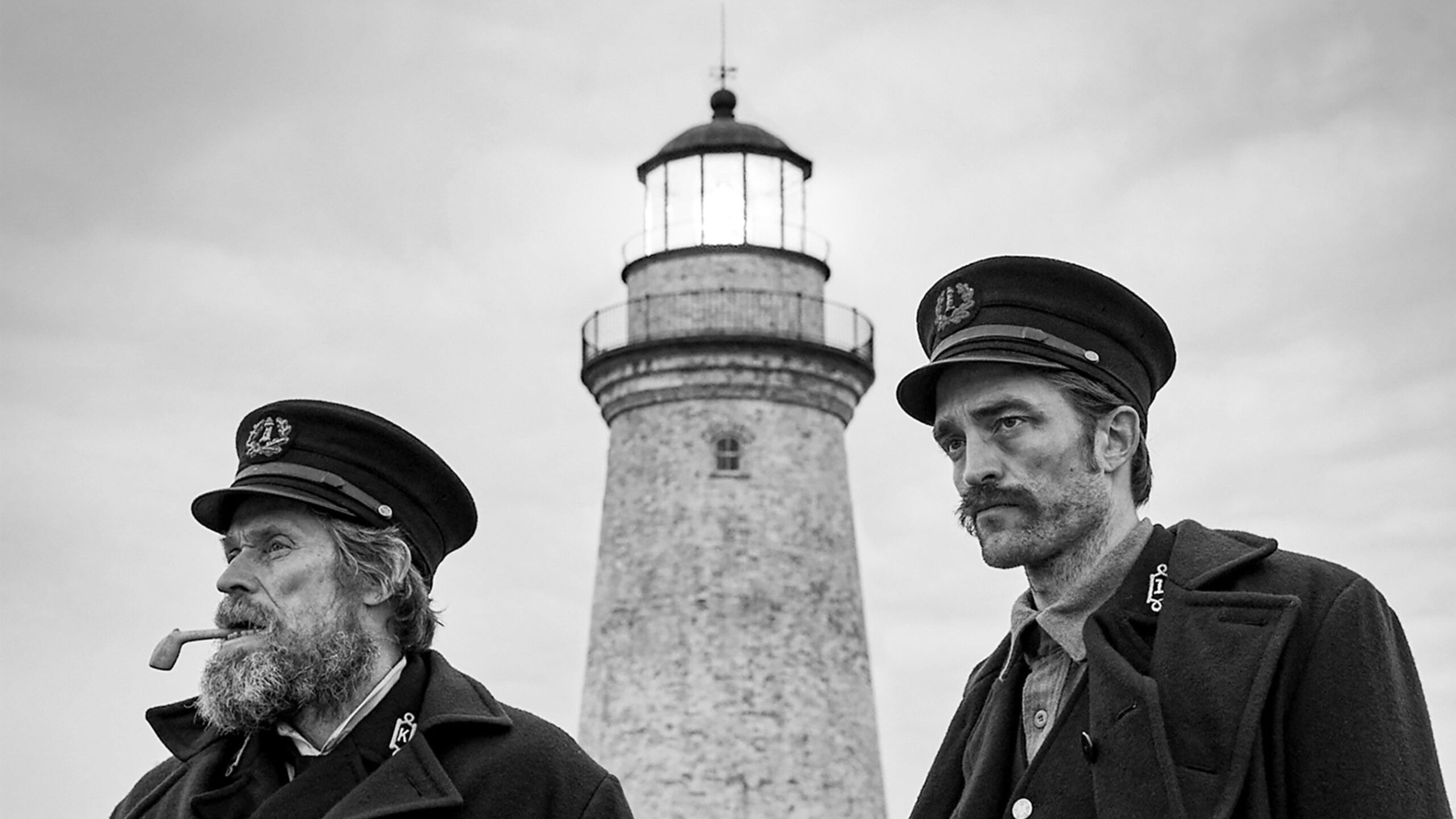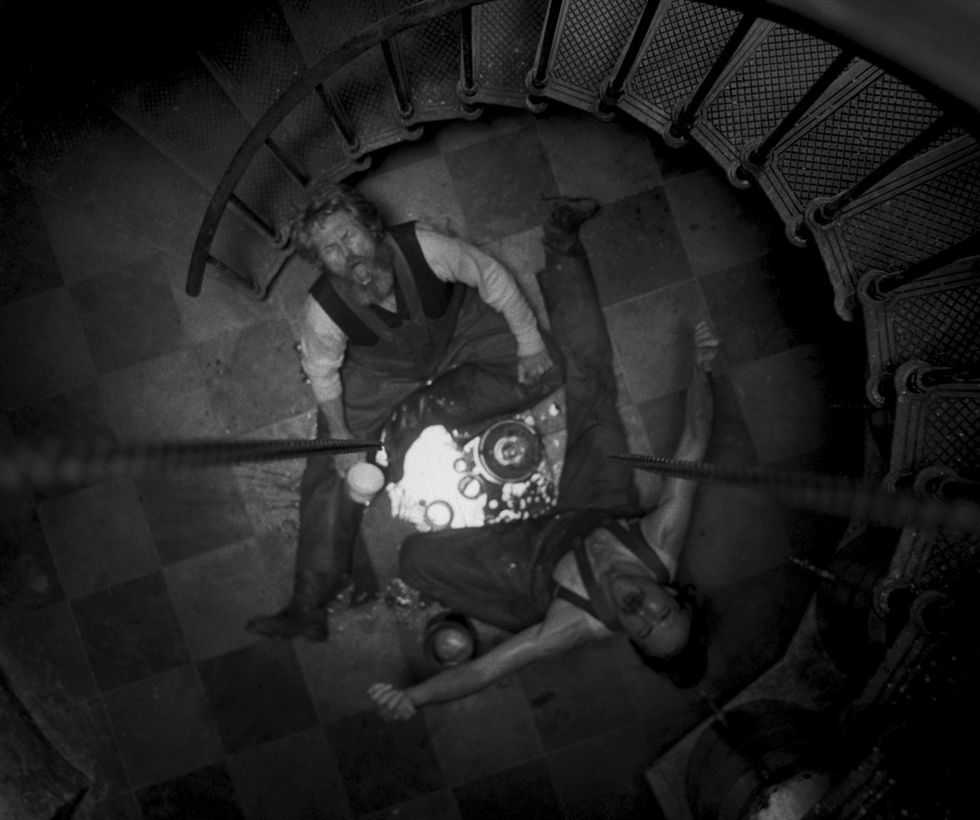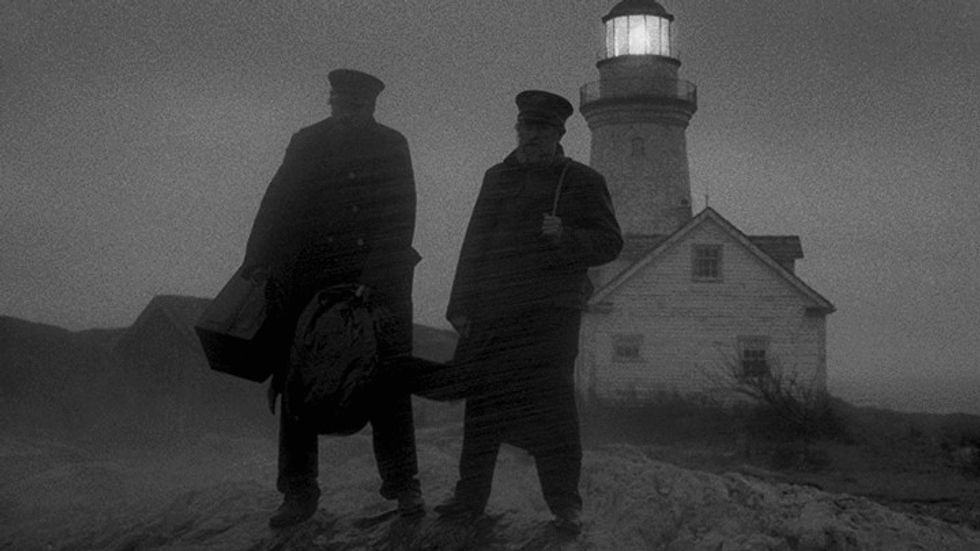Film
Stop Listening to Film Kids: “The Lighthouse” Is Actually Really Bad
13 Nov, 19

The Lighthouse
Last night, sitting in a full-for-a-Monday movie theatre, munching on lukewarm popcorn, I was struck by an odd wave of nostalgia as the first few frames of Roger Eggers’ The Lighthouse flashed monochromatically across the screen.
The film tells the story of two weathered men, Ephraim (Robert Pattinson) and Thomas (Willem Dafoe), who have been tasked with keeping a lighthouse, located on the edge of nowhere, running for four weeks. Thomas, the older man, soon proves to be manipulative and short-tempered, bossing the withdrawn Ephraim around and intentionally provoking him. He also refuses to let Ephraim into the light at the top of the lighthouse, causing Ephraim to fixate on gaining access. As the claustrophobic film progresses, tensions rise and the audience begins to wonder which man will lose his mind first. The movie features voracious masturbation scenes, ample violence, disturbing imagery, and even a glance at a mermaid vagina.

At first, I thought I was merely reminded of the black and white films of my youth—before quickly remembering that I’m 23-years-old, and the movies of my youth were in full color and featured Third Eye Blind soundtracks, not this string-heavy score playing over images of Willem Dafoe with a tangled beard. But still, I couldn’t shake the feeling that, somehow, I’d seen this film before. As the sparse 1890’s dialogue and long moments of tense, shadowed eye contact played out before me, the source of my deja vu struck me like one of the thousands of crashing waves featured in the film’s B-roll.
Let me invite you for a moment to the hallowed halls of Emerson College: a liberal arts university in Boston, Massachusetts that I attended for four years that offers students concentrations in theatre, communications, and, of course, film. There, in the concrete buildings facing the Boston Commons, hundreds of young men congregate every fall to lie about their favorite movie (no one’s favorite film is Citizen Kane, it just isn’t), learn how to operate a 16 mm Bolex in order to post shaky, otherwise unusable footage on their Instagrams, and, according to them, mature into the next Quentin Tarantino. That’s right, this is a school full of Film Kids™.
Film Kids™ can be spotted easily. Just look for cigarette-stained fingers, a sense of having a divine calling that translates to an introverted self-importance, and the tendency to use “Do you act?” as a pickup line at house parties. Film Kids™ also occasionally make films, though of course not nearly as often as they talk about making films. When a film is actually completed—only when the celestial bodies, the Film Kid’s™ parents’ credit cards, and the schedule of that one hot acting major all align—there are a few things you can be certain of about said film:
1. There will be no shortage of heavy-handed symbolism (ex. I once saw a student film in which all the female characters wore large phalluses outside their clothes to represent…something, probably.)
2. It will be shot in black and white. Why? Because ART, that’s why.
3. There will be a naked woman, even if a female character doesn’t appear at any other point in the film.
4. It will, 9 times out of 10, center on some sort of masculine identity crisis.
5. There will be A LOT of close ups on tense faces.
6. The male protagonists will be set up sympathetically, even if they are inherently unsympathetic.
7. There will be several fight scenes.
As I sat watching The Lighthouse, I realized that I had seen this film before, many times, just with a much lower budget and much less famous actors. This was the film that every kid with the beanie made and insisted I see. This was the film that a junior made for his directing class and subsequently invited me to play the role of “girl who lies naked in bed beside protagonist when he receives important phone call in middle of the night.” This was every student film made by a white male I’d ever seen during my years at Emerson.
Indeed, Eggers’ sophomore film is so heavily stylized, so completely self-important, so steeped in masculine energy, that I was almost tempted to review it positively, in the exact same way I was tempted to tell that beanie wearing Film Kid™ that I loved his movie. Why? Because Film Kids™, like Eggers, have the ability to make non-Film Kids™ feel like they should have loved their work, as if the blatant symbolism and gratuitous, arrogant visual composition must be good because they’re just so…much.

The Lighthouse practically shouts its themes in your face: sexual repression, guilt, isolation, violent tension turning erotic and then violent again, not to mention the countless allusions to Greek myths, specifically Proteus and Prometheus. But when you start to unpack what exactly all of these cinematic devices come together to say, you inevitably come up with some vague bullsh*t answer about a lighthouse representing an erect appendage and light representing freedom from oneself, or maybe coming or something. Frankly, what the film does offer by way of meaning could have easily been gleaned from the trailer.
While there are plenty of positive things about The Lighthouse, including its masterful creation of tension, often excellent acting from Dafoe and Pattinson, and the film’s ability to immerse its audience in a shadowy, grey world of harsh elements, all of this is overshadowed by the extraordinary self-importance that infects every moment of the movie.
So, as I wish I had told that beanie wearing 19-year-old with the Pulp Fiction poster on his wall when I was a sophomore in college, no, I did not like the film. Even beyond its sense of its own grandeur, there was a feeling of exclusivity to the whole movie, a glorifying of the struggle of the white man that I was excluded from just as surely as I was excluded from my college film department’s weird house parties. Sure, the film is meant to depict an insular, isolated world; but, frankly, I’m tired of stories that paint white men as sympathetic victims of a cruel universe. I’m tired of seeing movies where the only woman in the film is naked, beautiful, and half-fish. I’m tired of homoeroticism being depicted as a shameful, often violent, impulse. I’m tired of trying to assign some kind of transcendent meaning to two sad little men spending their time making love to holes in their mattresses. I’m tired of having to pretend that I like Film Kids™’ weird inaccessible, and pretentious movies.
- BOX OFFICE BREAKDOWN | What’s coming to theaters this … ›
- ‘Annihilation’ Is a Mind-Bending Rollercoaster – Popdust ›
- “The Lighthouse” Actually Looks Like an Original Movie – Popdust ›
- REVIEW | A24’s Bodies, Bodies, Bodies – Popdust ›
- ‘The Lighthouse’ review: Willem Dafoe, Robert Pattinson mesmerize … ›
- ‘The Lighthouse’ Review: Willem Dafoe Gaslights Robert Pattinson … ›
- The Lighthouse – Movie Review – YouTube ›
- The Lighthouse movie review & film summary (2019) | Roger Ebert ›
- ‘The Lighthouse’ Movie Review: Robert Eggers ›
- Review: ‘The Lighthouse’ Is A Gorgeous Maritime Nightmare : NPR ›
- ‘The Lighthouse’ Review: A Strange Kind of Horror Film – The Atlantic ›
- “The Lighthouse” and “Jojo Rabbit,” Reviewed | The New Yorker ›
- The Lighthouse (2019) – Rotten Tomatoes ›
- ‘The Lighthouse’ Review: Dark Nights, Troubled Souls, Hairy Men … ›













